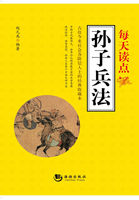If our neighbours did not mind their own business they would be asked abruptly for their rent, and would rapidly cease to be our neighbours.
What we really mean when we say that they cannot mind their own business is something much deeper. We do not dislike them because they have so little force and fire that they cannot be interested in themselves. We dislike them because they have so much force and fire that they can be interested in us as well.
What we dread about our neighbours, in short, is not the narrowness of their horizon, but their superb tendency to broaden it. And all aversions to ordinary humanity have this general character. They are not aversions to its feebleness (as is pretended), but to its energy.
The misanthropes pretend that they despise humanity for its weakness.
As a matter of fact, they hate it for its strength.
Of course, this shrinking from the brutal vivacity and brutal variety of common men is a perfectly reasonable and excusable thing as long as it does not pretend to any point of superiority.
It is when it calls itself aristocracy or aestheticism or a superiority to the bourgeoisie that its inherent weakness has in justice to be pointed out. Fastidiousness is the most pardonable of vices;but it is the most unpardonable of virtues. Nietzsche, who represents most prominently this pretentious claim of the fastidious, has a description somewhere--a very powerful description in the purely literary sense--of the disgust and disdain which consume him at the sight of the common people with their common faces, their common voices, and their common minds. As I have said, this attitude is almost beautiful if we may regard it as pathetic.
Nietzsche's aristocracy has about it all the sacredness that belongs to the weak. When he makes us feel that he cannot endure the innumerable faces, the incessant voices, the overpowering omnipresence which belongs to the mob, he will have the sympathy of anybody who has ever been sick on a steamer or tired in a crowded omnibus.
Every man has hated mankind when he was less than a man.
Every man has had humanity in his eyes like a blinding fog, humanity in his nostrils like a suffocating smell. But when Nietzsche has the incredible lack of humour and lack of imagination to ask us to believe that his aristocracy is an aristocracy of strong muscles or an aristocracy of strong wills, it is necessary to point out the truth.
It is an aristocracy of weak nerves.
We make our friends; we make our enemies; but God makes our next-door neighbour. Hence he comes to us clad in all the careless terrors of nature; he is as strange as the stars, as reckless and indifferent as the rain. He is Man, the most terrible of the beasts.
That is why the old religions and the old scriptural language showed so sharp a wisdom when they spoke, not of one's duty towards humanity, but one's duty towards one's neighbour. The duty towards humanity may often take the form of some choice which is personal or even pleasurable.
That duty may be a hobby; it may even be a dissipation.
We may work in the East End because we are peculiarly fitted to work in the East End, or because we think we are; we may fight for the cause of international peace because we are very fond of fighting.
The most monstrous martyrdom, the most repulsive experience, may be the result of choice or a kind of taste. We may be so made as to be particularly fond of lunatics or specially interested in leprosy.
We may love negroes because they are black or German Socialists because they are pedantic. But we have to love our neighbour because he is there--a much more alarming reason for a much more serious operation.
He is the sample of humanity which is actually given us.
Precisely because he may be anybody he is everybody.
He is a symbol because he is an accident.
Doubtless men flee from small environments into lands that are very deadly. But this is natural enough; for they are not fleeing from death. They are fleeing from life. And this principle applies to ring within ring of the social system of humanity.
It is perfectly reasonable that men should seek for some particular variety of the human type, so long as they are seeking for that variety of the human type, and not for mere human variety.
It is quite proper that a British diplomatist should seek the society of Japanese generals, if what he wants is Japanese generals.
But if what he wants is people different from himself, he had much better stop at home and discuss religion with the housemaid.
It is quite reasonable that the village genius should come up to conquer London if what he wants is to conquer London. But if he wants to conquer something fundamentally and symbolically hostile and also very strong, he had much better remain where he is and have a row with the rector.
The man in the suburban street is quite right if he goes to Ramsgate for the sake of Ramsgate--a difficult thing to imagine.
But if, as he expresses it, he goes to Ramsgate "for a change,"then he would have a much more romantic and even melodramatic change if he jumped over the wall into his neighbours garden.
The consequences would be bracing in a sense far beyond the possibilities of Ramsgate hygiene.
Now, exactly as this principle applies to the empire, to the nation within the empire, to the city within the nation, to the street within the city, so it applies to the home within the street.
The institution of the family is to be commended for precisely the same reasons that the institution of the nation, or the institution of the city, are in this matter to be commended.
It is a good thing for a man to live in a family for the same reason that it is a good thing for a man to be besieged in a city.
It is a good thing for a man to live in a family in the same sense that it is a beautiful and delightful thing for a man to be snowed up in a street.















